

..........................................................................................................................................................
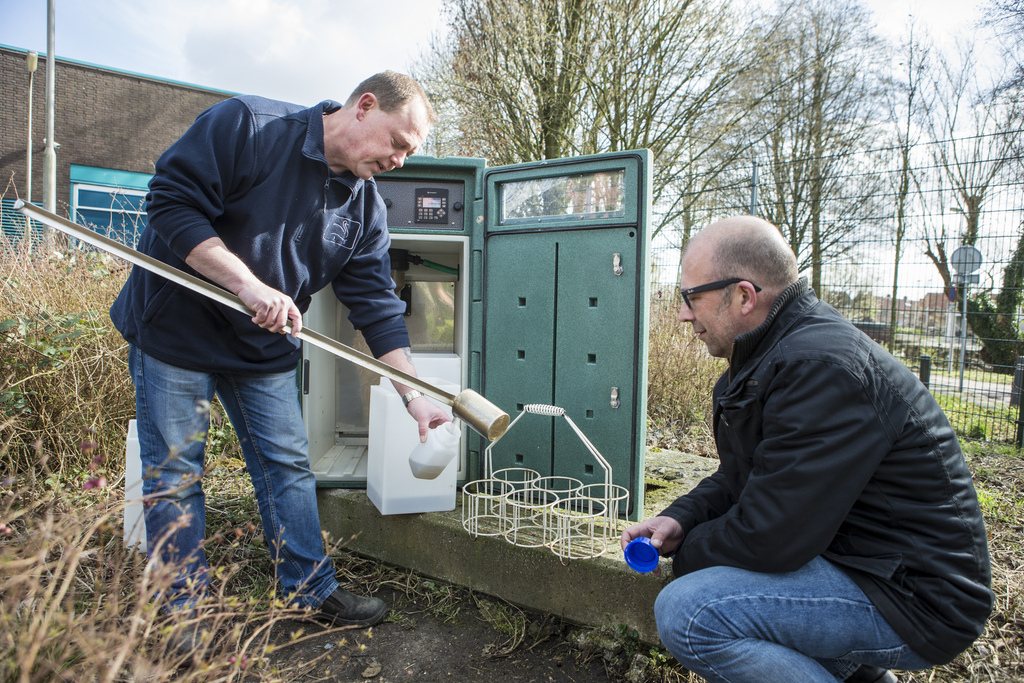 |
| KWR employees taking samples of sewage water as part of a European study to determine the presence of cocaine and party drugs. |
.
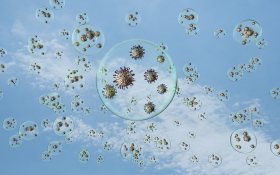 The detection of COVID-19 in the sewage water at the Dutch WWTP
does not really come as a surprise - sewage water contains many
viruses and the detection of the new coronavirus from human faeces was to
be expected - SARS-CoV RNA had been detected in the sewage water of Chinese
hospitals where SARS-patients were treated
The detection of COVID-19 in the sewage water at the Dutch WWTP
does not really come as a surprise - sewage water contains many
viruses and the detection of the new coronavirus from human faeces was to
be expected - SARS-CoV RNA had been detected in the sewage water of Chinese
hospitals where SARS-patients were treated
Dutch Water Sector
Microbiologists at
research institute KWR conducted a series of RNA-analyses at municipal waste
water treatment plants (WWTP) in the Netherlands.
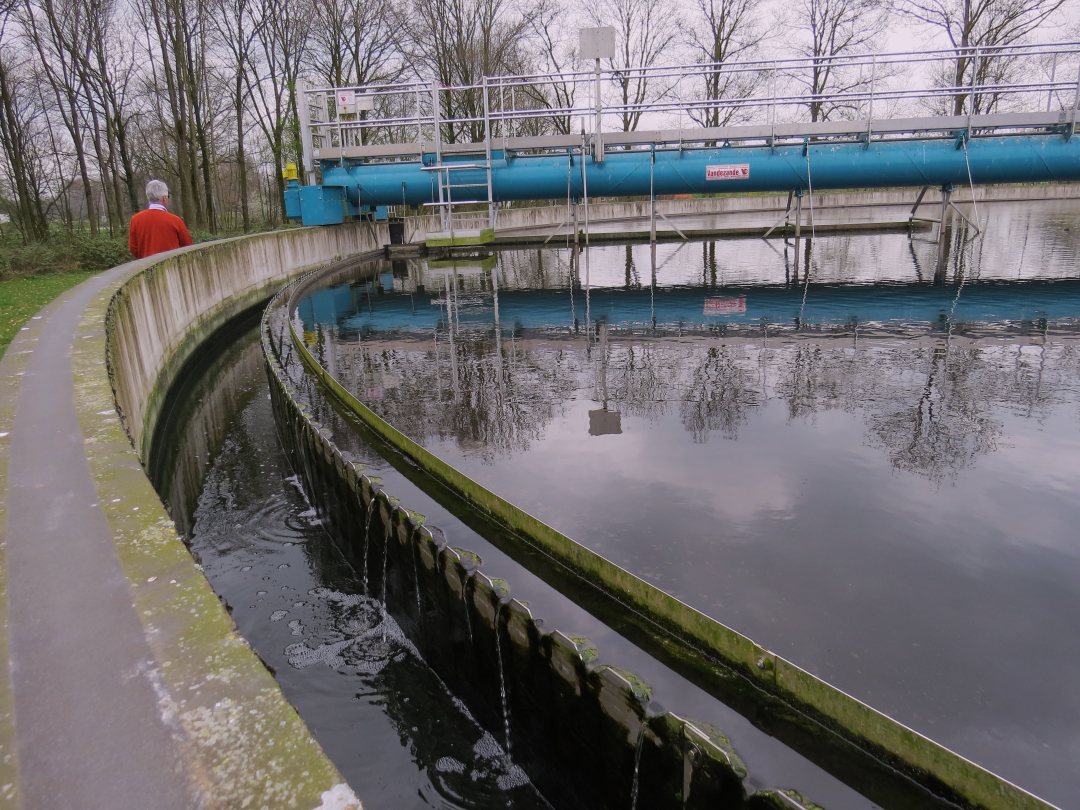 |
| Gene fragments of COVID-19 detected at Dutch WWTP. |
According to KWR
the screening of the COVID-19 virus at municipal waste water plants can be used
to signal new outbreaks in advance and play an important role to follow
the evolution of the pandemic.
Additional research
RNA-analysis is
a method to measure the presence of viruses through capturing virus
particles and detect specific gene fragments. The method does
not discriminate between inactive and infectious particles. The KWR
microbiologists say they have not yet been able to quantify the presence
of these fragments. Their first findings indicate that the concentration
of the virus at the WWTP is low.
Currently
researchers are examining all samples multiple times and are looking at
the reproducibility of the results. Furthermore, they double check and focus on
fragments of multiple genes, to strengthen their results about the presence of
the virus.
No real surprise
The detection of
COVID-19 in the sewage water at the Dutch WWTP does not really come as a
surprise.
Sewage water
contains many viruses and the detection of the new coronavirus from human
faeces was to be expected.
 Study results
released by Chinese microbiologists in 2005 showed that SARS-CoV RNA had been
detected in the sewage water of Chinese hospitals where SARS-patients were
treated.
Study results
released by Chinese microbiologists in 2005 showed that SARS-CoV RNA had been
detected in the sewage water of Chinese hospitals where SARS-patients were
treated.
Early warning of new outbreaks
KWR suggests the
use of the RNA-analyses of the
SARS-CoV-2 in sewage water as a tool to measure the virus circulation in
cities or smaller municipalities.
The concentration
level of the virus can be an indicator for the number of virus infections in
the population and can signal in advance a new outbreak, for instance
when a lock down is lifted.
Similarly, these
analyses can help monitor the effect of measures put in place to mitigate
the spreading of the pandemic, according to KWR.
The
Netherlands is a world leader in water management. Our country, often referred
to as Holland, is a relatively small, low lying, densely populated deltaic
region at the western edge of Europe. And that comes with its challenges. Over
the decades, the Dutch have mastered the art of flood protection and water
supply and treatment. Water is in our genes, is often said.
Living
in a challenging and vulnerable environment spurs innovation and cooperation.
In our case, this especially comes to life in Dutch water management. By
constantly adapting our approach to water over decades, we have gained an
advantage and we want to share our knowledge and skills internationally. We
believe that by putting our heads together, we can achieve more in tackling
global water related challenges. That is why this website features the best the
Dutch water sector has to offer, nationally and internationally.
The
Dutch water sector: your worldwide partner for water solutions
Water
does not stop at borders. The world faces major water challenges every day,
whether the water is too much, too little or too polluted. These challenges
require holistic and sustainable solutions which call for cooperation and the
exchange of knowledge and expertise. The Dutch water sector invites you to team
up to find the best solutions for our changing world.
https://www.dutchwatersector.com/news/sewage-water-as-indicator-for-spreading-of-covid-19
You might also like:
CLICK HERE . . . to view . . .
..............................................................................................................
CLICK HERE . . . to view . . .
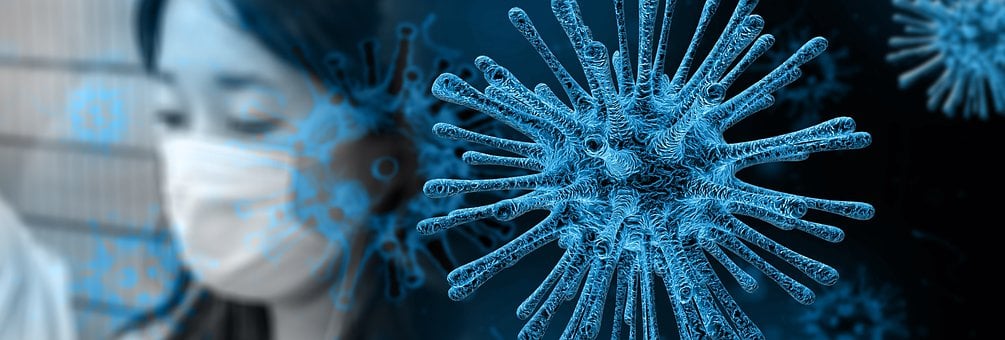


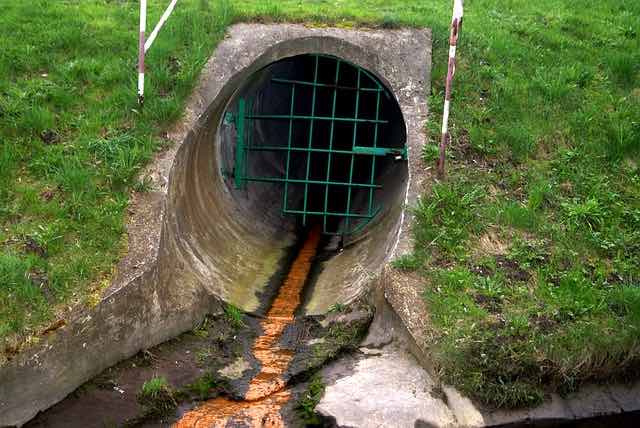
No comments:
Post a Comment